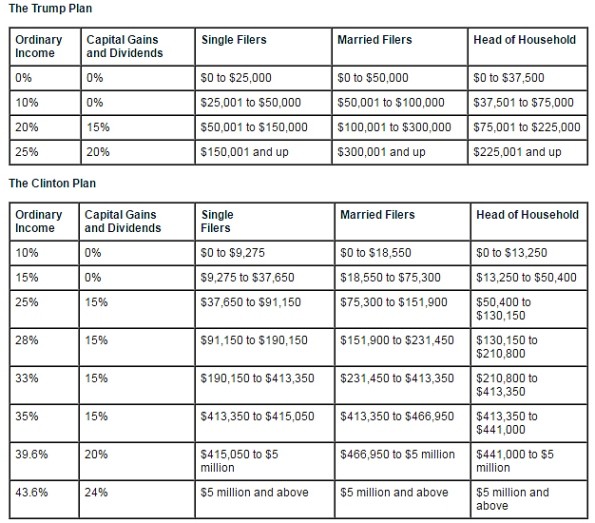 Much has been written and said about the fiscal cliff. This summary and analysis from the Tax Foundation notes that the current situation "is the culmination of a decade of ‘temporary’ tax and budget bills that have postponed resolution of key policy differences." It looks ahead to the next steps. An example:
Much has been written and said about the fiscal cliff. This summary and analysis from the Tax Foundation notes that the current situation "is the culmination of a decade of ‘temporary’ tax and budget bills that have postponed resolution of key policy differences." It looks ahead to the next steps. An example:
Estate Tax Increase
The estate of an individual who dies on December 31, 2012 will pay a federal estate tax (or death tax) of 35 percent on anything above $5.12 million. If the decedent instead passes away the next day, and Congress has not yet acted to change the law, the estate will instead owe a 55 percent tax on anything above $1 million. Even President Obama, no defender of estate tax repeal, considers this level too high: he has urged a compromise proposal of a 45 percent tax on estates over $3.5 million. Republicans generally support complete repeal of the tax.
There are few taxes that are as polarizing as the estate tax. A 2009 poll by the Tax Foundation found that the estate tax is viewed by taxpayers as the most "unfair" of all federal taxes but at the same time the estate tax seems to be a rallying point for those that agitate for redistribution through the tax code.[3] (In 2009, the estate tax raised about $20 billion, from a very small number of estates.) Opponents argue that the estate tax can break down family businesses while creating large compliance costs which are a drag on the economy.
Despite this seeming rift, there is a large and growing body of research by economists that generally lean left-of-center pointing toward repeal of the estate tax.[4] Nobel laureate economist Joseph Stiglitz, who served as chairman on Bill Clinton’s Council of Economic Advisors, authored a paper which argued that the estate tax actually increases inequality by reducing savings and driving up returns on capital (which largely benefit wealthy holders of capital).[5] Economist Larry Summers, former Treasury Secretary under President Clinton, co-authored a paper in 1981 that showed that the estate tax has severe impacts on the accumulation of privately held capital. Using Summers’ methodology, a July 2012 study by the Joint Economic Committee Republicans showed that since its inception, the estate tax has reduced the capital stock by approximately $1.1 trillion.[6]
The estate tax also encourages firms to structure as corporations instead of as family businesses, because corporations do not pay estate taxes when the person at the helm changes. Family businesses, however, can be subject to rates of over half the value of the estate when a deceased owner transfers the business to their heirs. This observation should be disconcerting to left-leaning voters, who recognize that smaller family businesses have ties to their communities. It should also concern right-leaning voters, who should see this as a distortion of the market process.
Perhaps the worst aspect of the estate tax is how uneven its impact is in practice. By utilizing careful estate planning, many wealthy taxpayers are able to shield much of their income from taxation upon their death. The people that tend to get hit the hardest are those that die unexpectedly, or, like farmers, have their assets tied up in illiquid holdings.[7] The estate planning industry has grown in size over the years as estate law becomes more complex. Three studies have even found that the compliance costs associated with the collection of the estate tax are actually higher than the amount of revenue the tax brings in.[8] Almost the entire estate planning industry can be thought of as economic waste, because it would not exist without the estate tax, and the high-skilled labor and capital utilized in that industry would be applied to other, more productive economic endeavors if the estate tax were repealed.
2011 and 2012 marked the first time in a decade that the estate tax rate and exemption level have been the same for more than one year. For 2010, the president and Congress (unintentionally) allowed the estate tax to expire completely, an outcome unexpected by most observers. While a repeat in 2013 may be desirable, exactly what happens remains to be seen.


 Much has been written and said about the fiscal cliff. This summary and analysis from the
Much has been written and said about the fiscal cliff. This summary and analysis from the  I thought this argument, forgive the pun, was dead and buried. The issue: an estate tax that penalizes business owners, investors and all survivors that must pay Uncle Sam for the success and monies earned by a person before they passed away.
I thought this argument, forgive the pun, was dead and buried. The issue: an estate tax that penalizes business owners, investors and all survivors that must pay Uncle Sam for the success and monies earned by a person before they passed away.